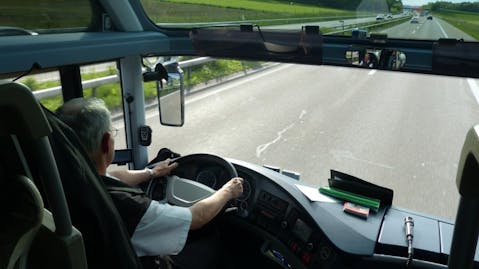In case you are looking for a new career, this list of 9 jobs with high depression rates will help you choose which professions to avoid.It is extremely hard to explain depression to someone who has never suffered from it. After all, we all feel a bit under the weather once in a while. You watch a sad movie, listen to a few songs about lovers torn apart and few glasses (bottles in extreme circumstances) you’re back to being your old cheerful self. Sound simple enough. But in case of depression, nothing is simple. Imagine feeling sad and hopeless all the time, but being forced to smile and feign happiness so that people around you would stop pestering you with questions. Most of the time they mean good, but in the long run, all they do is make you feel even worse. That’s depression in a nutshell. A constant state of helplessness interrupted by bouts of anxiety.
Every year, 15 million cases of depression are diagnosed in the United States alone. Currently, 10% of the entire US population is suffering from some form of depression. What is worrying is the fact that 60-80% of all cases are quite treatable with a relatively short therapy that combines psychotherapy and medications.
Apart from directly affecting people who suffer from it and their families and friends, depression has a strong economic impact on society. First, ever growing medical costs are burdening already straining health care system. Second, a much larger price is extracted from the loss of productivity at the work place. People with depression can’t perform as well as healthy workers. A study published in The Journal of Clinical Psychiatry in 2003 claimed that the total economic impact of depression is $83 billion annually, with a major chunk of it claimed by the loss of productivity.
Naturally, some professions are more prone to depression than others. What seems to be a deciding factor whether a job is susceptible to high depression rates or not is interaction with people. 8 out of 9 high depression jobs on our list include some form of human services, be it education, public transit or health care that cause a lot of stress. Interestingly enough, this list overlaps with the 10 highest suicide rates by profession in only few fields. It would be reasonable to expect that both lists are nearly identical, but it seems that jobs with high depression rates are more suited to deal with it.
The only categories that have higher depression rates than the jobs on our list are unemployed and recently divorced. So if you are looking for a job, try to stay away from these.
9. Food service staff
Low pay, physically demanding job and a lot of hungry people sounds like a great recipe for a stressful job.

SpeedKingz/Shutterstock.com
8. Healthcare
Working with sick people can really put a lid on one’s cheerfulness.

Rob Marmion/Shutterstock.com
7. Salespeople
Have you ever visited Retail Horror Stories on Reddit? If you have, you’ll be surprised that salespeople aren’t higher on this list.

Karramba Production/Shutterstock.com
6. Legal services
Everyday contact with humanity’s worst examples can’t be good for your mental health. That’s why this job is in the 6th position on our list of 9 jobs with high depression rates.

Syda Productions/Shutterstock.com
5. Financial services
This is a field that made the appearances on this list after 2008 financial crisis and has never left it afterward.

Denys Prykhodov/Shutterstock.com
4. Education
Stress rates for teachers are highly dependent on the location of their school. Teachers that work with sensitive groups and in poverty stricken areas are far more prevalent to depression than their colleagues from more well to do schools.

3. Social workers
If you spend your entire day listening to people’s sad stories, you should develop some excellent coping mechanisms. Especially vulnerable are those social workers who work with children.

Monkey Business Images/Shutterstock.com
2. Real estate
Another profession that was hit hard by the last economic downfall; real estate agents suffer from high stress working environment that leads to depression.

1. Public transit
And number one job with high depression rates is the bus driver. They are stuck in traffic for 5 or 6 hours every day and responsible for the lives of 50 or 60 people on board, while often being abused by passengers. You would be depressed too.






